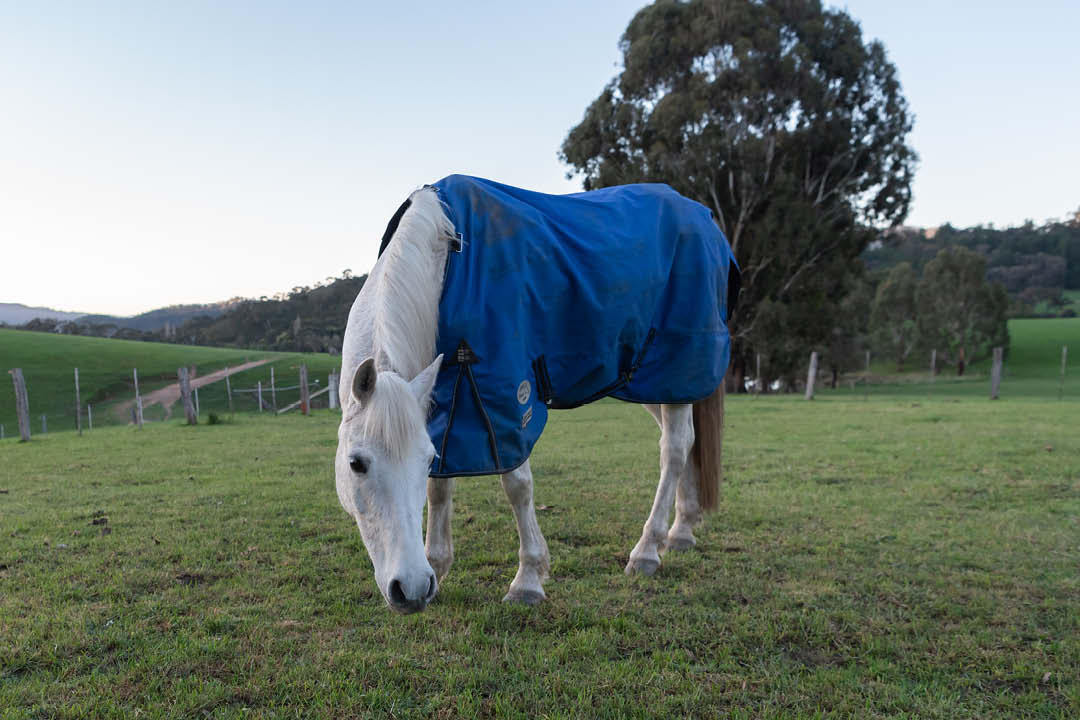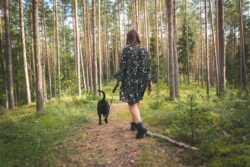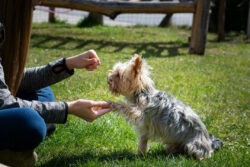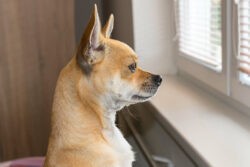Keep the animals in your life warm and healthy this winter by following our essential tips.
DOGS
- Coats and jumpers can keep dogs with short coats warm and snug in winter.
- Try to make sure your dog gets a walk no matter what the weather is like.
- If it is unsafe for you to go out, make sure you provide other enrichment for your pet.
- If you are unable to walk on well-lit paths, wear something high viz, such as a bright armband, and put a light-up collar on your dog.
- Trim the hair around your dog’s feet to help prevent painful ice-balls forming between the pads and toes of the feet.
- If you walk on treated pavements wash your dog’s paws after a walk because salt and grit can irritate their footpads. This will also prevent them licking it off their feet.
- Keep your dog on a lead near frozen water. If he does run on to it, don’t run after him. Most dogs are strong swimmers and are more likely to be able to get themselves out of trouble than you might think. Do not risk falling into freezing water.
- If your dog is less active during the winter months, don’t forget to cut back a bit on what you feed him.
- If your dog has arthritis and shows signs of discomfort in the cold, contact your vet.
CATS
- Most cats prefer to spend more time indoors, but if yours is the outdoors type ensure he has a warm place to shelter. When it’s really cold, keep him inside – pet cats can develop hypothermia and frostbite.
- Cats are often tempted by the warmth to crawl into a car engine resulting in them being seriously injured or even killed when the engine is started. They might also venture somewhere they shouldn’t and get trapped without food or water. If in doubt, keep your cat inside. Buy a litter tray and some litter in preparation.
RABBITS & GUINEA PIGS
- Position a hutch so that wind, rain, snow or sleet can’t blow in. Cover the front with an old blanket or sacking and add extra bedding.
- If the weather’s particularly bad, move the hutch into an unused garage or shed. It’s better to keep guinea pigs inside in winter, in a conservatory or unused garage.
- You can get insulated water bottle covers for winter, nevertheless, check them regularly to make sure your pet can access water.
- Your pet still needs to have access to their run during the day so they can get their regular exercise.
- Provide lots of good quality hay as rabbits and guinea pigs need more calories to keep warm.
- Make sure your hutch is sturdy enough to survive the attention of a determined predator — foxes and badgers are bolder than usual in the winter when they’re hungry.
HORSES
- Horses cope well in cold temperatures – it’s wind and rain that they can struggle with. Provide a windbreak, like a field shelter or even a line of trees.
- Fit a suitable rug that’s warm and waterproof – If he’s losing weight, increase your horse’s hay as this’ll help to keep him warm. Remember though, overweight horses are still susceptible to laminitis, even in winter.
- A tennis ball floating in the water trough can help slow the freezing process. Keep a tool handy to get rid of ice.
- Chilly winds can make horses ‘spooky’ and unpredictable so be alert when handling and riding. • Walk your horse after exercise so he cools down slowly and, if necessary, use a cooler blanket to stop his body temperature from losing heat too quickly
- Always wear reflective clothing when you’re out riding.
- Never ride if it’s foggy or icy.
Our thanks to the Blue Cross for their photos & help with this feature.







